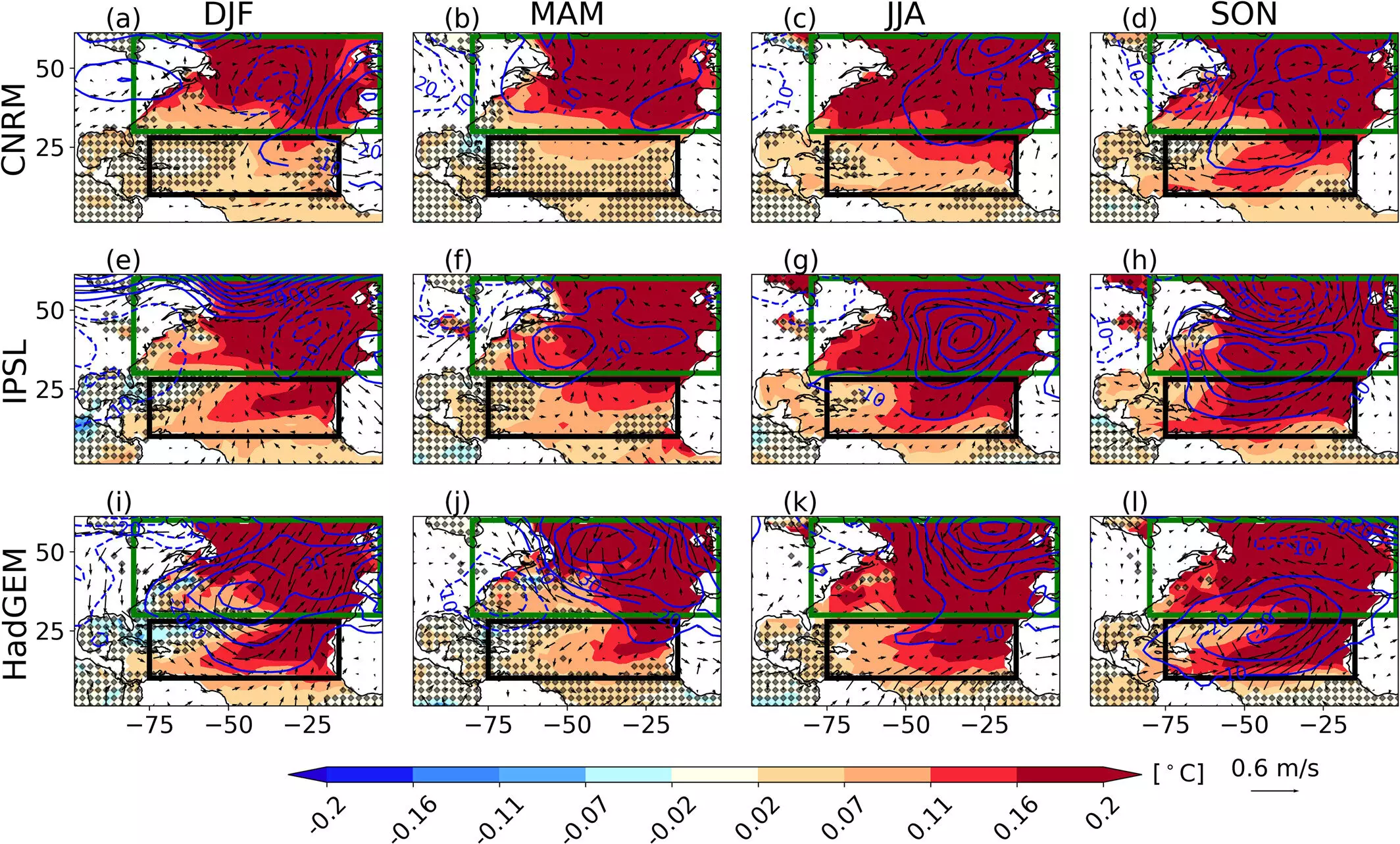Recent research has illuminated the intricate relationship between ocean dynamics and global climate patterns, particularly focusing on the tropical Atlantic Ocean. For years, the prevailing belief was that ocean-atmosphere heat exchanges primarily governed climate variability. However, groundbreaking findings suggest that the characteristics of the ocean’s mixed layer—the thin zone where warmer surface waters interact with cooler depths—play a vital role in influencing longer-term climatic trends, notably a phenomenon known as Atlantic Multidecadal Variability (AMV).
The AMV is a climate pattern that significantly impacts weather across continents, including North America, Europe, and Africa. Research reveals that the interactions within the mixed layer contribute significantly to this variability, influencing phenomena such as hurricane activity in the Caribbean and precipitation patterns in the Sahel. In essence, variations in the ocean’s mixed layer depth directly correlate with fluctuations in the climate, suggesting a more complex feedback system than previously recognized.
Dr. Balaji Senapati and colleagues from the University of Reading have published their findings, challenging traditional climate perspectives. Their research underscores that when the North Atlantic experiences warmer-than-average conditions, the resultant weakening of trade winds leads to a shallower mixed layer. This cultural layer, thinner and more susceptible to solar radiation, results in heightened warming in the tropical region, further reinforcing the warming phase of AMV. The study emphasizes how this cascading process creates a feedback loop that perpetuates the ongoing changes in climate.
Conversely, during cooler phases of the AMV, this loop is disrupted, leading to broader cooling trends across the Atlantic. Such insights are crucial for climate modeling, as they introduce a layer of complexity that could enhance the accuracy of models traditionally reliant on simplified ocean-atmosphere interactions.
Challenges for Climate Modeling
The implications of these findings extend to how scientists approach climate forecasting. A significant concern raised by the research is the potential inadequacies within current climate models, which may overlook the pivotal role of ocean mixing processes in their calculations. As climate change presents unprecedented challenges, refining models to incorporate these new insights could lead to better prediction capabilities and more effective mitigation strategies.
Additionally, this research reflects the need to continuously update our scientific understanding of climate mechanisms as new data emerges. It urges the scientific community to broaden the scope of what factors influence climate and to delve deeper into the complexities of ocean dynamics.
The findings from Dr. Senapati’s team mark a significant revision in our understanding of the complex interactions between ocean dynamics and climate variability. As the global community faces escalating climate-related challenges, advancing our comprehension of these ecological processes becomes more crucial. Knowledge derived from such studies can lead to more precise climate models, ultimately helping to formulate strategies that address the multifaceted issues posed by climate change. The future of climate science depends on integrating these insights to foster a resilient planet capable of adapting to the changes ahead.


Leave a Reply